5 Nutrition Strategies To Combat Stress
How do you manage when higher levels of stress come in your life?
Are you someone who pushes through it despite the challenges or are you someone who runs away from stress? Neither of these are wrong because we are genetically wired for fight or flight. But in our modern lives, there is more than just our default fight or flight patterns to combat stress.
5 Nutritional Strategies it Use When Stress is High
1) Supplement with Magnesium
Magnesium is an essential supplement when it comes to managing stress, as it plays a vital role in over 300 processes within the body! The benefits of magnesium for stress management are many.
Firstly, magnesium has a calming effect on the nervous system, helping to reduce stress hormones and promote relaxation. Additionally, it has been found that higher levels of magnesium are associated with improved sleep efficiency, longer sleep duration, and better sleep continuity, all of which are crucial for effectively coping with stressors. Moreover, magnesium aids in muscle relaxation, relieving tension and alleviating cramps that can further contribute to stress. Lastly, by regulating stress hormones, magnesium helps to reduce anxiety and create a state of calmness, fostering a peaceful mindset with less stress.
Action:
- Take a magnesium supplement 30 minutes before bed each day.
- Magnesium supplementation can be used after any bout of stress including after a workout or when drinking alcohol.
- Try to incorporate foods high in magnesium such as dark green leafy veggies, nuts, seeds and whole grains.
2) Stay Hydrated
Ensuring an adequate intake of water throughout the day is a fundamental habit that enhances our ability to cope with stress. Water plays a crucial role in facilitating cellular repair, maintaining homeostasis, and generating energy. Therefore, the extent to which we can effectively respond to stress is closely tied to our hydration of our cells.
It's important to keep in mind that alcohol and caffeine act as diuretics, increasing fluid loss from the body and increasing stress. Consequently, it becomes necessary to replenish the lost fluids by consuming additional water.
Action:
- Drink enough water each day to meet your hydration needs.
- A simple baseline formula to determine how much water (minimum) to drink daily: Weight (in pounds) divided by 2 = amount of water (in ounces). For example, a 200 lb person will need 100oz of water.
- The amount for each person is also dependent on a variety of factors such as age, physical activity, health concerns, medications, environment, diuretics etc. Therefore the 200 lb individual will need more than 100 ounces if they exercise regularly, are outdoors in sunshine or consuming coffee.
3) Eat Carbohydrates
Carbohydrates are an essential macronutrient that our body requires for optimal energy. Manipulating (decreasing) carbohydrate intake is often a strategy used for weight loss however under periods of significant stress it is not a good idea to be focused on eating low carbs.
Eating carbohydrates when under high stress can boost serotonin levels, a neurotransmitter that helps regulate mood and reduce anxiety. Carbohydrates as mentioned are also an essential fuel source during high stress and will help to optimize your energy. The key however is to focus on healthy complex carbohydrates and fruit versus processed carbohydrates which can add more stress to the body.
Action:
- A ‘low carb’ diet is considered to be <100 grams of carbohydrates per day. Therefore, when stress is up, eat >100 grams of carbohydrates per day. How much over 100 grams will depend on your activity level.
- To prevent blood sugar spikes, avoid eating carbs by themselves (especially if they are simple carbs like fruit or potato). Always pair your carbs with protein or ‘protein fats’ like nuts and seeds. Blood sugar spikes mess with your energy which affects stress.
- If you do high intensity physical activity, make sure to eat carbs before AND after your exercise.
- Do not eat processed inflammatory carbohydrate foods like muffins, bagels, pepperoni pizza or pop.
4) Eat Enough Calories
Like carbohydrates, eating enough calories is very important when it comes to being stress resilient. Low calorie diets or skipping meals because you are too busy is not a smart idea when stress is high.
Humans genetically evolved during times of feast when food was abundant and during times of famine when food was scarce. In times of famine, the body perceives low calorie as a stressor. Simply put, eating a low calorie diet is a stress upon the body even today. If you are experiencing more stress than usual in life, make sure to eat enough calories each day.
Action:
- Do not skip meals. Eat a balanced breakfast, lunch and dinner.
- If it is hard to find time for a balanced meal, then pack snacks that you can eat throughout the day.
- Shakes and smoothies are excellent ways to get calories in when you are unable to eat a meal.
5) Avoid/Limit Caffeine
Caffeine is a stimulant. It affects the adrenal glands that produce stress-related hormones like adrenaline and cortisol. The impact of caffeine on the adrenal glands varies among individuals. Some people can metabolize caffeine efficiently and develop a tolerance without negative effects on their adrenal glands or stress hormones. However, others may experience increased stress on their body after consuming caffeine.
Depending on an individual's unique caffeine metabolism, it may be advisable for some people to avoid caffeine altogether. Regardless, consuming excessive amounts of caffeine can elevate stress levels and deplete your body of water.
Action:
- If you metabolize caffeine well, stick to no more than 1 serving (ie: one cup of coffee) maximum per day.
- Avoid caffeine in the afternoon as it can then impact sleep.
- If you do not handle caffeine well, avoid it all together or switch to green tea which can have a calming effect due to L-theanine that is present.
Want to learn more about stress and how to become more resilient? Download our free
Stress Foundations PDF. Need coaching to help you implement this information? Reach out to us
here to chat about health coaching.
